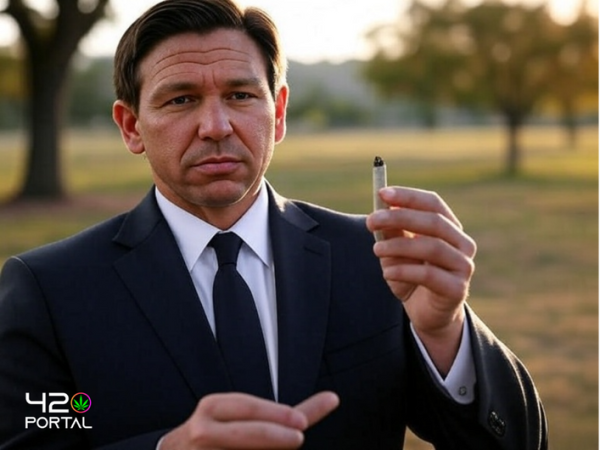Florida's Push for Recreational Marijuana Legalization Gains Steam for 2026 Ballot

07/11/2025
Florida voters may soon get another chance to weigh in on legalizing recreational marijuana, as a citizen-led initiative has rapidly gathered momentum. Supporters of the proposed constitutional amendment, known as the Adult Personal Use of Marijuana initiative, have collected more than 613,000 valid petition signatures statewide, putting them well on track to qualify for the November 2026 general election ballot.
The measure would allow adults aged 21 and older to possess, purchase, and use up to three ounces of marijuana flower or five grams of concentrates for non-medical purposes. It would also permit existing medical marijuana treatment centers to sell products to recreational users and enable the state to issue licenses for additional cannabis businesses, while prohibiting public smoking or vaping and banning marketing that appeals to children.
To appear on the ballot, the campaign must secure at least 880,062 valid signatures by February 1, 2026, including minimum thresholds in at least 14 of the state's 28 congressional districts. Having already surpassed the 25% mark with over 220,000 signatures earlier this year, the initiative has triggered mandatory reviews by the Florida Supreme Court for ballot language clarity and the Financial Impact Estimating Conference to assess potential fiscal effects.
The drive is largely backed by the cannabis industry, with Trulieve, Florida's largest medical marijuana operator, providing significant funding similar to its multimillion-dollar support for the 2024 effort. Advocates argue that legalization would generate substantial tax revenue—potentially hundreds of millions annually—for education, public safety, and infrastructure, while reducing black-market activity and easing the burden on the criminal justice system. They point to successful models in states like Colorado and California, where regulated markets have boosted economies without widespread negative societal impacts.
Opposition remains strong, however, led by Governor Ron DeSantis and conservative groups who warn of increased public health risks, including higher rates of impaired driving and youth access. Critics also express concerns over the initiative's lack of provisions for home cultivation, which they say limits personal freedoms and favors large corporations. DeSantis, who actively campaigned against the 2024 proposal, has called such measures a threat to Florida's family-friendly image.
As the petition drive continues, early polls suggest shifting public opinion, with support hovering around 60% in some surveys, though challenges like voter turnout and opposition spending could sway the outcome. If approved, the amendment would build on Florida's existing medical marijuana program, established in 2016, potentially transforming the state's cannabis landscape and aligning it with nearly half of U.S. states that have legalized recreational use.
Reference
The measure would allow adults aged 21 and older to possess, purchase, and use up to three ounces of marijuana flower or five grams of concentrates for non-medical purposes. It would also permit existing medical marijuana treatment centers to sell products to recreational users and enable the state to issue licenses for additional cannabis businesses, while prohibiting public smoking or vaping and banning marketing that appeals to children.
To appear on the ballot, the campaign must secure at least 880,062 valid signatures by February 1, 2026, including minimum thresholds in at least 14 of the state's 28 congressional districts. Having already surpassed the 25% mark with over 220,000 signatures earlier this year, the initiative has triggered mandatory reviews by the Florida Supreme Court for ballot language clarity and the Financial Impact Estimating Conference to assess potential fiscal effects.
The drive is largely backed by the cannabis industry, with Trulieve, Florida's largest medical marijuana operator, providing significant funding similar to its multimillion-dollar support for the 2024 effort. Advocates argue that legalization would generate substantial tax revenue—potentially hundreds of millions annually—for education, public safety, and infrastructure, while reducing black-market activity and easing the burden on the criminal justice system. They point to successful models in states like Colorado and California, where regulated markets have boosted economies without widespread negative societal impacts.
Opposition remains strong, however, led by Governor Ron DeSantis and conservative groups who warn of increased public health risks, including higher rates of impaired driving and youth access. Critics also express concerns over the initiative's lack of provisions for home cultivation, which they say limits personal freedoms and favors large corporations. DeSantis, who actively campaigned against the 2024 proposal, has called such measures a threat to Florida's family-friendly image.
As the petition drive continues, early polls suggest shifting public opinion, with support hovering around 60% in some surveys, though challenges like voter turnout and opposition spending could sway the outcome. If approved, the amendment would build on Florida's existing medical marijuana program, established in 2016, potentially transforming the state's cannabis landscape and aligning it with nearly half of U.S. states that have legalized recreational use.
Reference







